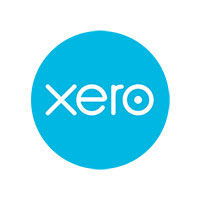
Following the Autumn Statement the government has published a consultation on company distributions rules, along with proposed draft legislation. The proposed changes will take effect from 6 April 2016.
The changes complement the proposed changes to the taxation of dividend income, which further increase the attractiveness of a distribution taxed as capital gain (at 10% if entrepreneur’s relief is available) against one taxed as income (at up to 38.1%).
In the consultation document HMRC outline the situations where the government perceives the existing rules are being abused and company owners are receiving an ‘unfair’ advantage. These situations are:
- A disposal of shares to a third party where a cash balance is left in the company in order to increase sales proceeds and so, in effect, turn distributable reserves represented by cash into capital.
- Repayment of share capital (including share premium) following a reorganisation.
- A purchase of own shares (for unquoted companies) where the seller retains sufficient interest in the company to block a special resolution.
- A capital distribution made in a winding-up, in cases where:
- A company has been used as a moneybox;
- The owner is setting up ‘phoenix’ companies; or
- A company is a special purpose vehicle.
There are 2 strands to the changes now proposed. The first is a range of measures to strengthen the existing anti-avoidance rules which can tax a capital distribution as income (the ‘transactions in securities’ rules). The second is a specific anti-avoidance measure, a Targeted Anti-Avoidance Rule (‘TAAR’), aimed at the return of capital on a winding up of a company (the fourth bullet point above).
The TAAR
The proposed TAAR will need to be considered where there is a capital distribution on the winding up of a company. Where the TAAR applies that distribution is treated as an income distribution (charged to income tax, at rates up to 38.1%).
The TAAR applies where three conditions are met:
- A) The company is a ‘close company’ (or has been such a company within the previous two years). This will include most privately-owned companies;
- B) Within two years after the date of the distribution, the individual receiving the distribution (or someone connected, eg. a family member) is involved in carrying on any trade or other activity previously carried on by the company (or any similar trade or activity); this would include carrying on such trade or activity as a sole trader or through a partnership, as well as in a new company; and
- C) It is reasonable in all the circumstances to assume that the main purpose or one of the main purposes of the winding up is the avoidance of income tax. For this purpose the fact that Condition B is met is regarded as a relevant circumstance.
There are just two specific exemptions:
- to the extent that the distribution represents the repayment of the share capital originally subscribed for;
- where all of the assets that are distributed consist of irredeemable shares in a subsidiary of the company being wound up.
The TAAR applies to any distribution made on or after 6 April 2016.
The TAAR is particularly likely to affect activities which are typically carried on through a special purpose vehicle, for example property development. It will also affect situations where another family member, for example a child, carries on a similar business to his or her parent.
The TAAR should not affect situations where the individual owner or owners retire and have no further involvement in the business or similar business to that previously carried on by their company.
Any such transactions that are in progress or currently being contemplated, should be reviewed to establish whether they might be within the scope of the TAAR or other proposed changes, and if so, distributions where possible should be made prior to 6 April 2016.
Please contact Mark Wildi on 01689 877 081 if you would like further information or require advice.




